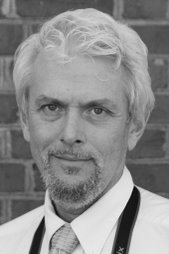This week's attempt on the part of defense attorney Homer Eliades to put some heat on our chief of police has got me thinking and remembering. In my 16 years of being a local journalist, this isn't the first time I've seen public opinion put pressure on a public servant.
In the case of the ongoing investigation into possible police malfeasance, Eliades says he, his clients and the commonwealth's attorney are dancing in the dark, not permitted to know what charges, if any, will be made. Accordingly, Eliades wants city council to instruct the city manager to direct the chief to either name the allegations and file charges or return a number of bureau employees, who have been on paid, administrative leave since late January, to their job duties. Eliades says it's unfair for the officers and the public to be kept on pins and needles, and that it does the city's reputation no good for the investigation to be both secret and drawn out.
Of course he's right, but there's more to this issue than fairness and public relations. If the chief has reason to believe there are problems with specific employees of his bureau, leaving them on duty to possibly foment more mischief is not an option.
And a hasty investigation is worse than none at all. Going off at half-cock is the world's best way to cast aspersions on innocent people while giving the guilty time to cover up, lawyer up, even flee. Any probe that is done must be done deliberately, with information delivered to press and public when and if true bills are handed up by the grand jury.
So the suspensions with pay, though troublesome, are far less so than the alternatives. Ignoring the possibilities that the guilty will commit further criminal acts, or that the innocent will have mud splattered on their reputations is not an option. Depriving an uncharged suspect of income is also not an option.
To be sure, there is a sort of natural time constraint in effect, and the meter is running. The chief knows the bureau employees on leave will, sooner or later, be subpoenaed to appear in court to testify on cases in which they were the arresting or investigating officer. If they are forbidden by either bureau policy or law from doing so while under investigation, a lot of suspects, innocent and otherwise, could have their cases put on hold, clogging up court dockets with business which would otherwise be quickly adjudicated.
And the chief, from the conversations I've had with him, appears to consider expeditious conduct of the probe to be an important part of his duty to his city and his fellow officers.
This afternoon, city council members are sitting down with our city manager, who is Chief Marks' supervisor, and some intimate they will pressure Alan Archer to pressure Marks to do what Eliades wants.
If that's what happens it's a shame. The law is the law, and no matter what the public's perception of a given case, allowing that opinion to hasten (or delay) discovery of evidence which might exonerate or implicate suspects is a bad move, ethically, legally and morally.
If Marks and Archer stand their ground and refuse to allow elected officials to interfere with their duties, there's nothing council can do, except to fire Archer and hope his replacement will do council's bidding.
And if it turns out, in the cold light of day, that Marks and Archer are right to stand fast and adhere to professional standards, no matter what the personal or career costs, then they, not city council, will be the heroes of this little saga.
Since there are only so many well-qualified persons to handle the complex and demanding tasks of city manager and police chief, casting off the ones we've already got might be, to say the least, radically ill advised.
Personally, I don't have a dog in this fight. I like all the principal players just fine, and believe they all do their level best to make our city a better place. But I can like someone even while I oppose his actions. In this case, until much more time has gone by, I have to believe our elected officials should stand back and allow the hired help to do its work, regardless of what the caprices of public opinion might demand.

No comments:
Post a Comment